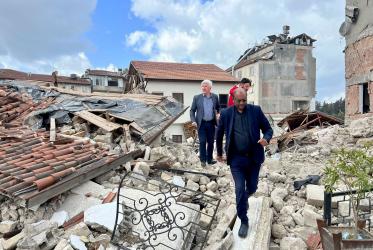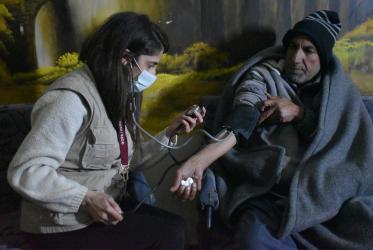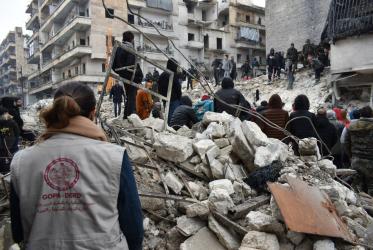Griechisch-Orthodoxes Patriarchat von Antiochien und dem gesamten Morgenland
*Distribution (membership):
- Middle East: 1,250,000
- Asia: 80,000
- Europe: 40,000
- Latin America: 2,500,000
- North America: 450,000
The Orthodox Church of Antioch goes back to the time of the apostles (cf. Acts). In the 4th century the total Christian population of the eastern province of the Roman Empire, of which Antioch was the capital, was under its jurisdiction, and in the 6th century it had more than 150 metropolitans and bishops. Since then, however, the number has gone down because of the division of the church, the heresies of the 4th and 5th centuries, the granting of independence to the churches of Cyprus and Iberia, the Islamic advance in the 7th century and the formation of the Uniate Church in the 18th century. Since the beginning of the 20th century, especially after the second world war, an enormous number of Orthodox people belonging to the Church of Antioch have been emigrating or moving from the countryside to the big towns and to different parts of the world (Europe, Latin and North America, Australia).
The jurisdiction of the Patriarchate of Antioch and All the East covers all of Syria, Lebanon, Iraq and Iran, the Arabian peninsula, the whole orient and also certain areas of southern Turkey (Antioch region where there are six Antiochian congregations). It also extends to the Arab-speaking Orthodox who live in Europe, North and South America, Australia and New Zealand. The holy synod is the highest ecclesiastical authority of Antioch and consists of the patriarch as president and the metropolitans who are the diocesan leaders as members. Priests are trained at St John of Damascus theological faculty at Tripoli, Lebanon and the theological seminary at Patriarchal St George Monastery, Syria. Currently there are 100 students.
The Patriarchate is greatly concerned about the suffering in the Middle East, the creation of a Palestinian state, and its responsibilities for its people in the midst of a multi-religious society. An authentic witness to the Christian faith, pastoral care of youth, and reorganization of its establishment in order to express more clearly its apostolicity and its unity, are high on its agenda. Particular emphasis is laid on the coherence of the family which is the centre of the church and the source of spiritual formation, as well as on youth who represent the active elements of the church and its future leaders. Besides, the diaconal services and ecumenical activities have a significant place on the agenda of the Patriarchate today.





